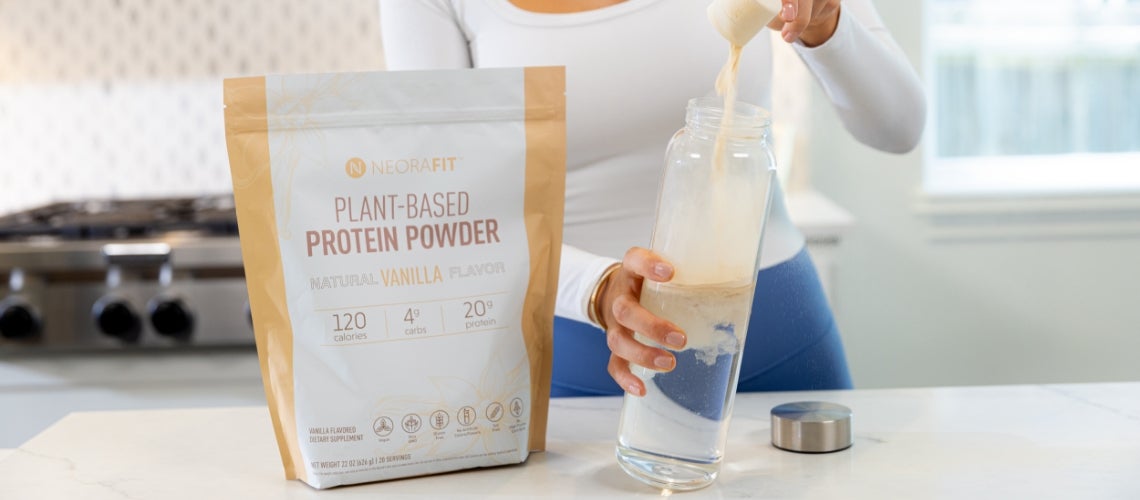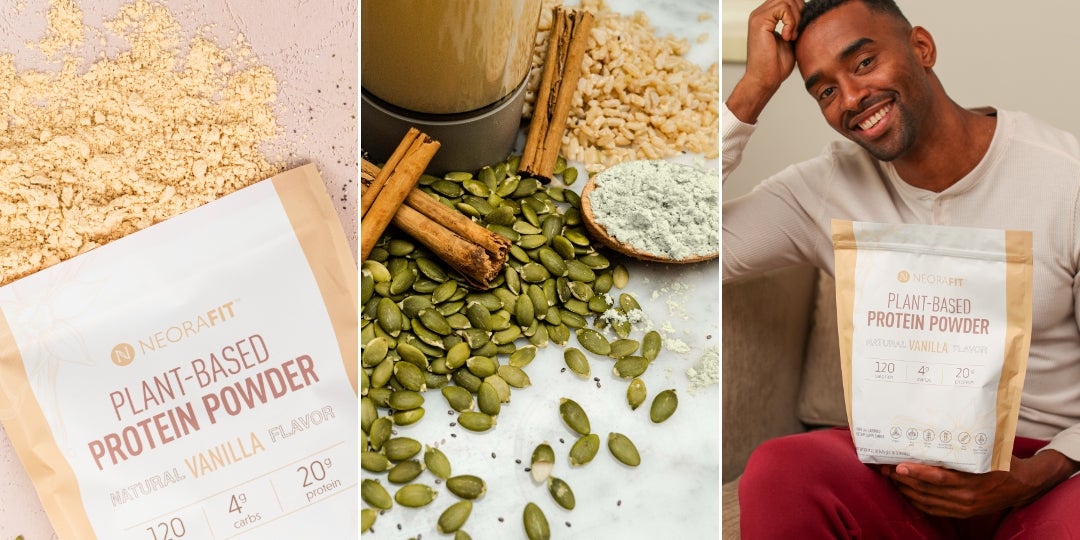How Do You Decide Between Plant and Whey Protein?

Protein, an important building block for muscles, enzymes, and hormones, plays a vital role in countless bodily functions. Incorporating enough protein into your daily diet is vital for supporting muscle growth, aiding in recovery, and maintaining overall health. And with so many options available, choosing the right protein powder for your specific needs can be challenging. Whether you’re focused on performance, weight loss, or finding a protein powder that meets your dietary restrictions, plant-based and whey protein (dairy-based) powders offer different benefits.
Nutritional Comparison
When comparing plant-based protein powder and whey protein on a nutritional level, the differences pop out. Whey protein is a complete protein, meaning it contains all nine essential amino acids – the ones we rely on for muscle repair and recovery. In contrast, while some plant-based proteins may need to be combined with other sources to offer a complete amino acid profile, many types, including pea and rice protein (which are both found in NeoraFit Plant-Based Protein Powder), are designed to provide all nine amino acids.
Plant-based proteins also provide added benefits such as fiber, vitamins, and minerals, supporting digestive health and improving overall nutrition. In terms of calorie count, both types of protein powders can vary, so it’s worth checking labels if you’re tracking calories.
Digestive Differences and Dietary Restrictions
For some, digestion can be a deciding factor between plant-based and whey proteins. Whey protein is derived from dairy, which means those who are lactose intolerant might experience digestive discomfort, such as bloating or gas. Since plant-based protein powders are naturally lactose-free, they are often easier on the stomach for people with dairy sensitivities.
While both proteins are generally easy to digest, clean protein powders from plant-based sources are less likely to cause digestive issues due to their natural, whole-food ingredients. They are usually also gluten-free, making them a great option for those with dietary restrictions.

Fitness and Performance
Both whey and plant-based protein powders can support fitness goals, but they may offer slightly different advantages. Whey protein is renowned for its fast absorption, making it an ideal post-workout option for muscle recovery.
Plant-based protein may take slightly longer to absorb but can still provide excellent results in terms of muscle building and recovery. Not to mention that plant proteins are often rich in fiber, aiding in weight loss by keeping you fuller for longer.
Special Considerations
For those who want to avoid animal products, vegan protein powder, made from peas, hemp or rice, is the best choice. These clean protein powders offer a range of benefits beyond just protein and are perfect for environmentally conscious consumers who prioritize sustainability in their dietary choices.
Finding the Best Fit
While there isn’t a one-size-fits-all approach to protein, the best protein powder will depend on your specific needs, dietary restrictions, and fitness goals. If you are focused on muscle recovery and want quick, efficient absorption, whey protein might be a good option. For those with dietary restrictions or who want a more natural, nutrient-rich option, plant-based protein powders offer plenty of benefits.
Whether you prioritize digestion,or performance, experimenting with both plant-based and whey options can help you decide what works best for your body. Consider trying NeoraFit Protein Powder for a clean, delicious, and vegan-friendly option!
No Comments